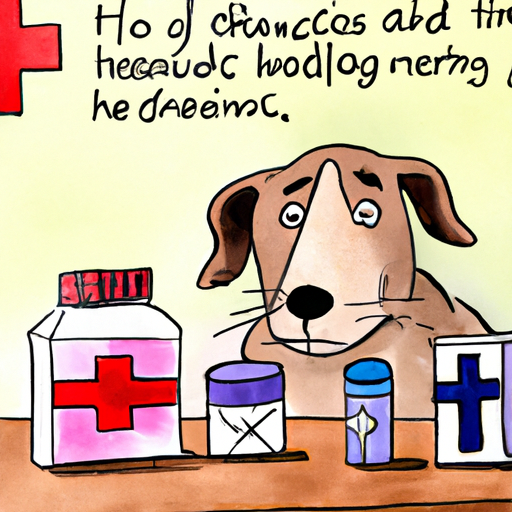As a caregiver, you want to do everything you can to keep your dog safe. One area that often gets overlooked is the world of human medications. While some of these medications can be used for dogs under veterinary supervision, others are extremely dangerous. This comprehensive guide will shed light on the medications that are toxic to dogs.
1. Over-the-Counter Drugs
Over-the-counter drugs are medications that can be purchased without a prescription. While some are safe for dogs in the right dosage, others can be deadly.
1.1 Non-Steroidal Anti-Inflammatory Drugs (NSAIDs)
NSAIDs like ibuprofen and naproxen are commonly used for pain relief in humans but can be toxic to dogs. Even small doses can cause severe kidney damage, stomach ulcers, and in rare cases, death.
| Drug | Toxic Dose |
|---|---|
| Ibuprofen | > 125 mg/kg |
| Naproxen | > 2.5 mg/kg |
1.2 Acetaminophen
Acetaminophen, found in Tylenol and other medications, can cause liver damage in dogs. Symptoms of toxicity include drooling, lethargy, and abdominal pain.
1.3 Decongestants
Decongestants like pseudoephedrine can be dangerous for dogs, causing agitation, elevated heart rates, and potentially seizures.
2. Prescription Drugs
Prescription drugs are designed to treat specific conditions, but when taken by a dog, they can have devastating effects.
2.1 Antidepressants
Antidepressants can cause vomiting and, in severe cases, serotonin syndrome – a condition marked by agitation, elevated body temperature, and heart rate.
2.2 ADHD Medications
ADHD medications are amphetamines that can cause tremors, heart problems, seizures and death in dogs.
2.3 Beta-blockers
Beta-blockers are used to treat heart conditions in humans, but they can cause life-threatening drops in blood pressure and heart rate in dogs.
3. Natural Supplements
Even natural, herbal supplements can be dangerous for dogs.
3.1 Xylitol
Xylitol, a natural sweetener found in many products, including some peanut butter brands, can lead to liver failure and death in dogs.
3.2 Certain Essential Oils
Some essential oils, like tea tree, wintergreen, and pennyroyal, can be toxic to dogs when ingested or applied to the skin.
4. What to Do if Your Dog Ingests a Toxic Medication
If your dog ingests a medication they shouldn’t, here’s what to do:
- Stay calm. Panicking will only stress your dog out more.
- Try to determine what they ingested and how much.
- Call your vet immediately. If it’s after hours, call an emergency vet.
- Follow their advice. They may tell you to induce vomiting or come in right away.
5. Prevention is Key
Preventing your dog from ingesting toxic medications is crucial. Here are some tips:
- Keep all medications out of reach of your dog.
- Never leave pills lying around, even if you think your dog can’t get to them.
- Don’t give your dog any medication without checking with your vet first.
FAQs
Q: Can a small amount of medication hurt my dog?
A: Yes, even small amounts of certain medications can be toxic to dogs.
Q: What should I do if my dog ingests medication?
A: Stay calm, try to determine what they ingested and how much, and call your vet immediately.
Q: Are over-the-counter drugs safe for dogs?
A: Some are, but many are not. Always consult with your vet before giving your dog any medication.
Q: Are natural supplements safe for dogs?
A: Some are, but others can be toxic. Always check with your vet before giving your dog any natural supplement.
Q: How can I prevent my dog from ingesting toxic medications?
A: Keep all medications out of reach, never leave pills lying around, and always check with your vet before giving your dog any medication.
Being aware of the dangers that human medications can pose to your dog is an integral part of being a responsible and caring caregiver. Always remember, when in doubt, always consult with your veterinarian.



